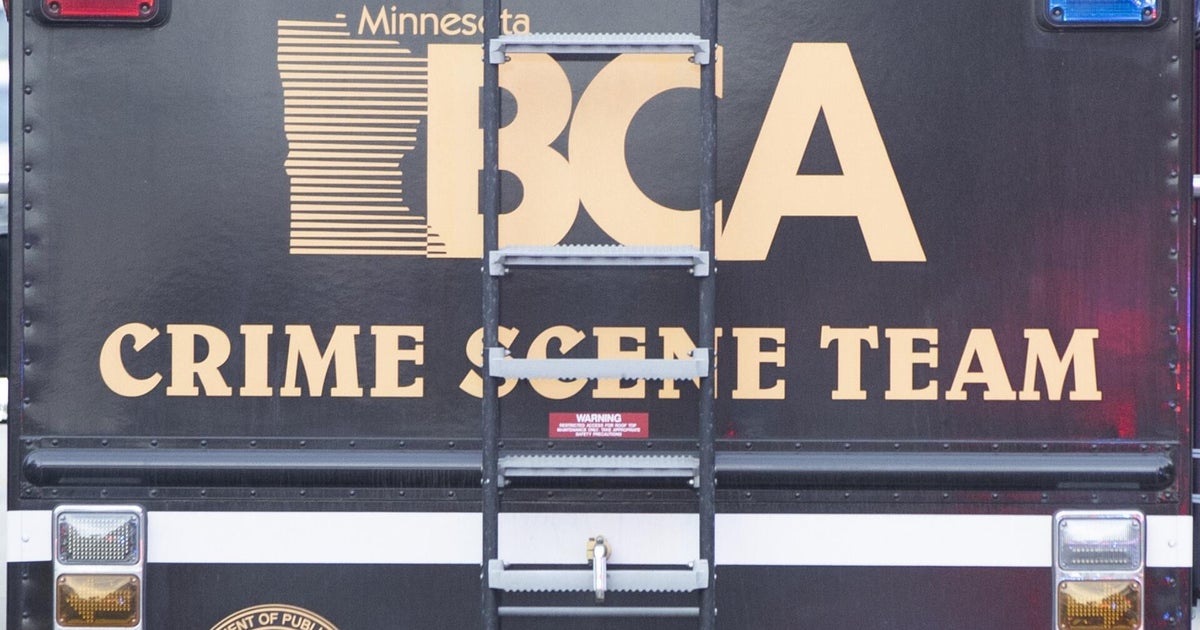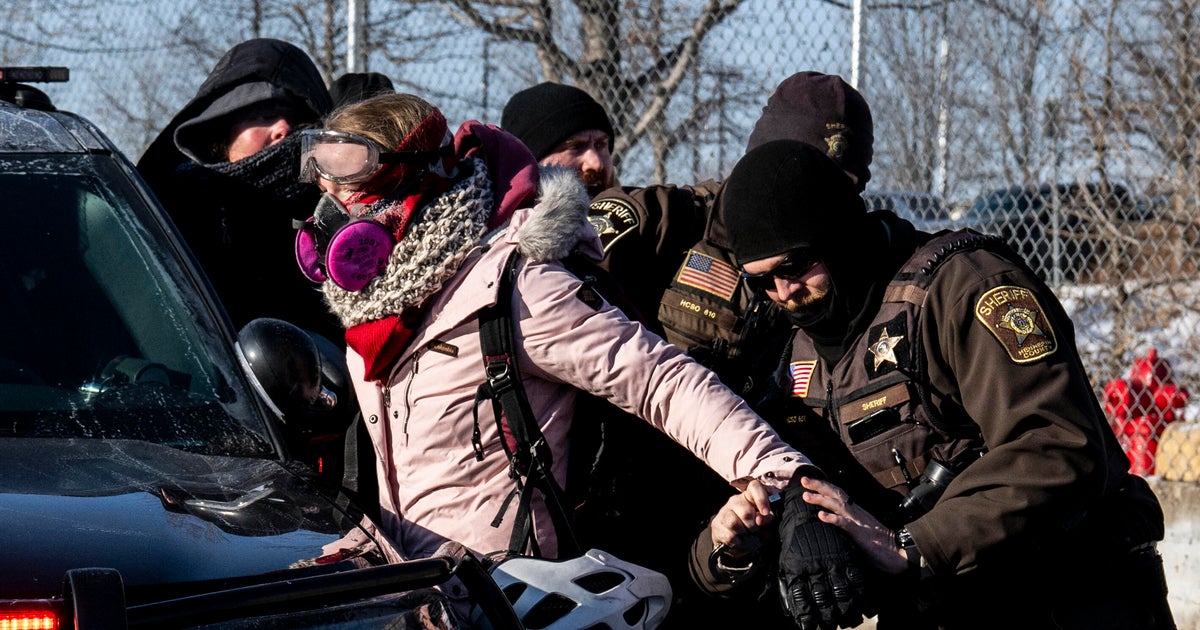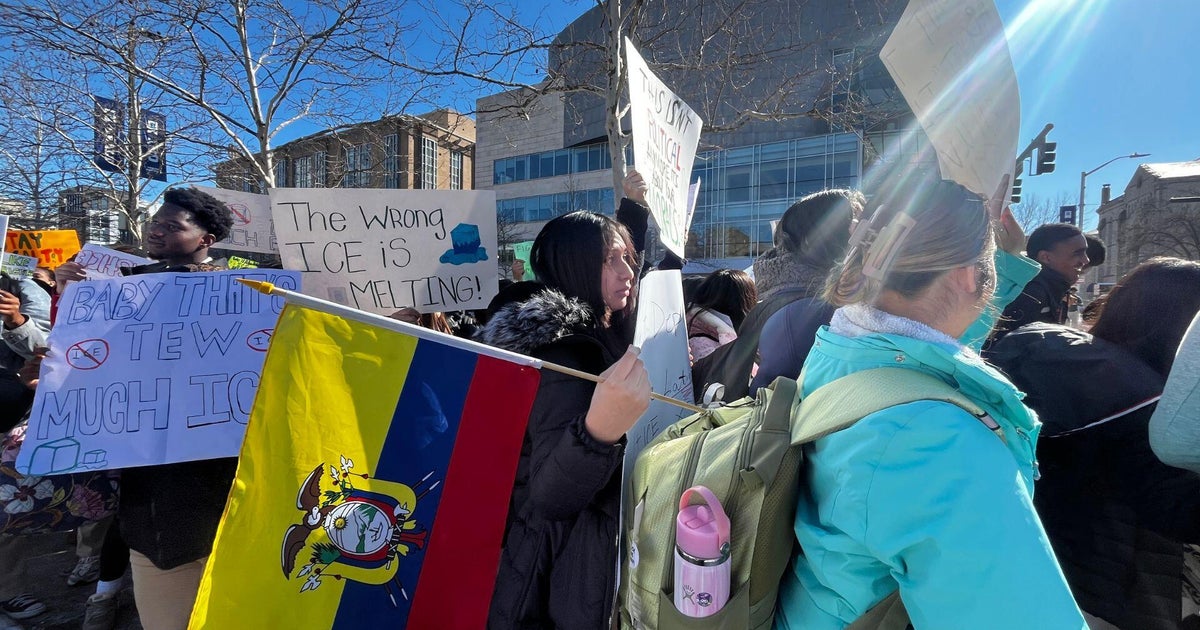Midwestern Enbridge Pipeline Protests To Escalate
MINNEAPOLIS (AP) — Protests are ratcheting up against Enbridge Energy's plan to replace its Line 3 crude oil pipeline from Canada to Wisconsin, and against a separate aging Enbridge pipeline under the waterway linking Michigan's upper and lower peninsulas.
Six protesters were arrested this week near Superior, Wisconsin, where Enbridge began work in June on a 12.5-mile (20-kilometer) segment amid plans to eventually replace Line 3, which carries Canadian tar sands crude from Alberta across North Dakota and northern Minnesota to its terminal in Superior.
The protesters briefly shut down construction Tuesday. Opponents of both pipelines plan Labor Day weekend actions in Minnesota, Wisconsin and Michigan.
The protest near Superior, by activists describing themselves as "water protectors," echoes opposition by American Indians to the Dakota Access pipeline. The Standing Rock Sioux Reservation in North Dakota witnessed more than a year of protests against the $3.8 billion project, which began moving North Dakota oil to Illinois this summer. Honor the Earth and other indigenous groups say Line 3 could become the next Standing Rock.
"I think we're seeing things coming to a head, with Enbridge proceeding to construction in Wisconsin and Canada despite lacking approval of the major segment that runs through Minnesota," said Tara Houska, of Honor the Earth.
Calgary, Alberta-based Enbridge proposed the $7.5 billion Line 3 replacement because capacity on the 1960s-era pipeline is sharply restricted. The project would restore its original capacity of 760,000 barrels per day. The company wants the replacement to follow the existing corridor as far as Clearbrook, Minnesota, then take a more southerly new route across Minnesota to Superior. Its preferred route cuts through the Mississippi River headwaters region and pristine lake country where Ojibwe bands harvest wild rice.
Minnesota regulators plan to decide next April whether to approve it.
"We are committed to replacing the entire Line 3 from Alberta to Wisconsin as soon as we have regulatory authority to do so," Enbridge spokeswoman Shannon Gustafson said.
Line 3's opponents also include the Treaty Alliance Against Tar Sands Expansion in Canada, a tribal effort against expanding oil pipeline infrastructure.
"Our people were at Standing Rock, and all the ingredients for another Standing Rock-style stand in defense of our water are there," spokesman Stewart Phillip, president of the Union of British Columbia Indian Chiefs, said recently.
The Assembly of First Nations regional chief for Manitoba, Kevin Hart, hinted that Canadian and other opponents might travel to Minnesota, following in the footsteps of the Dakota Access protesters.
"Do you think our indigenous people and our allies all over North America are going to let tribal peoples in Minnesota fight this alone?" Hart said.
The weekend's actions include a benefit concert Friday night for Honor the Earth in Moorhead, Minnesota, by Bonnie Raitt and the Indigo Girls. A group of Native American young people concludes a 250-mile (400-kilometer) canoe journey through affected areas Saturday at Big Sandy Lake.
In northern Michigan, protesters say they'll call attention to the dangers they say the 64-year-old Line 5 poses to the Great Lakes, particularly where it sits on the bottom of the Straits of Mackinac linking Lake Michigan and Lake Huron. A flotilla and rallies are planned Saturday, and they'll participate in the big annual Labor Day walk across the Mackinac Bridge, said David Holtz of the Oil and Water Don't Mix coalition.
Line 5 carries light crude and natural gas liquids from Superior to Sarnia, Ontario. Opponents warn of an increasing risk of rupture and possible catastrophic damage. Enbridge disclosed Wednesday it discovered gaps in a protective layer of enamel coating on the underwater pipes. But spokesman Ryan Duffy said it remains in "very good condition."
In Wisconsin, Ojibwe from the Red Cliff and Bad River bands plan a lacrosse game Saturday along Line 5, said pipeline opponent Patricia Hammel, an attorney representing one Superior protester. Line 5 crosses the Bad River Reservation, which seeks its removal.
Wisconsin's Division of Emergency Management and law enforcement agents are monitoring the protest situation but not yet making any plans for large-scale actions, said spokesman Tod Pritchard said.
"We'll be keeping an eye on things," he added.
North Dakota authorities made 761 arrests between August and February as protest camps drew hundreds and sometimes thousands of opponents. Ojibwe activists already have set up at least two relatively small-scale camps in Minnesota to resist Line 3.
"We absolutely respect the right of individuals to express their views on the energy we all use," Gustafson said. "But vandalism and occupation of pipeline areas have the potential to cause serious harm to people. ... We can't continue to tolerate the trespassing and vandalism and unlawful actions that put the environment at risk."
(© Copyright 2017 The Associated Press. All Rights Reserved. This material may not be published, broadcast, rewritten or redistributed.)







